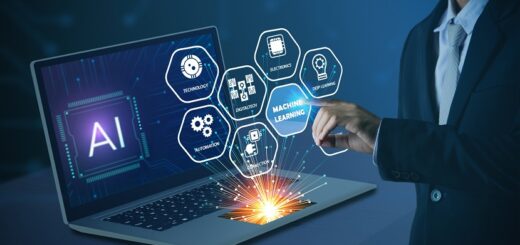Machine Learning Models to Boost eCommerce Marketing Campaigns
In today’s fast-paced digital world, data-driven marketing is key to gaining a competitive edge in eCommerce. Machine learning models have become indispensable in creating personalized marketing strategies that resonate with customers and maximize conversions. By analyzing large datasets and uncovering patterns, machine learning empowers businesses to make more informed marketing decisions. Machine learning in eCommerce marketing not only enhances customer engagement through tailored recommendations. But also optimizes inventory management and pricing strategies, ensuring a seamless and efficient shopping experience.
1. How Machine Learning is Revolutionizing eCommerce Marketing
Machine learning (ML) has completely transformed how eCommerce businesses approach marketing. Traditionally, marketers relied on basic data analytics to make decisions, but ML takes this a step further by automating the analysis of vast amounts of data and providing actionable insights.
- Customer Segmentation: One of the core applications of ML in eCommerce marketing is its ability to automatically segment customers into distinct groups based on their behavior, preferences, and past purchases. This allows businesses to craft more personalized and targeted campaigns.
- Predictive Analytics: ML models analyze historical data to predict future customer behavior. By understanding what customers are likely to do next, businesses can plan marketing strategies that align with these predictions.
For instance, machine learning can forecast when customers are most likely to make a repeat purchase or when they are at risk of churning. Armed with this knowledge, eCommerce businesses can send personalized offers or reminders at just the right time to re-engage customers.
Check out more insights on AI-driven marketing on The Techno Wave.
2. Key Applications of Machine Learning in eCommerce Marketing
The potential applications of machine learning in eCommerce marketing are vast. Here are some of the most common ways businesses are leveraging ML:
- Dynamic Pricing: ML models monitor market conditions, competitor pricing, and customer behavior to recommend dynamic pricing strategies. This ensures that businesses can offer competitive prices while maximizing profits.
- Recommendation Engines: Recommendation engines powered by machine learning analyze customer behavior to suggest products that are highly relevant to each individual shopper. These personalized recommendations increase the likelihood of conversions and improve the customer experience.
- Ad Targeting Optimization: Machine learning helps businesses optimize their ad targeting by analyzing data from previous campaigns. By identifying which audiences are most likely to engage with ads, businesses can improve ROI on their marketing spend.
- A/B Testing: Machine learning models can automate A/B testing for marketing campaigns, providing real-time feedback on which variations are performing better. This helps businesses make data-driven decisions on what works best for their audience.
3. How Machine Learning Enhances Personalization
Personalization is one of the most powerful tools in an eCommerce marketer’s toolkit, and machine learning combined with business intelligence makes it possible at scale. By analyzing customer data, ML models and BI systems can create highly personalized experiences that increase customer satisfaction and drive sales.
- Email Personalization: ML models can analyze customer behavior to determine the best time to send marketing emails and what content will be most relevant. Personalized email subject lines and tailored product recommendations can significantly improve open and click-through rates.
- Website Customization: Machine learning can also be used to customize a website’s content based on a user’s browsing history. For example, if a customer frequently shops for electronics, the homepage can be tailored to feature the latest gadgets and deals.
- Loyalty Program Optimization: Machine learning can analyze customer spending habits to suggest the most effective rewards and incentives. Personalized offers based on individual shopping behavior make loyalty programs more attractive and encourage repeat purchases.
4. The Future of Machine Learning in eCommerce Marketing
Machine learning is set to become even more integrated into eCommerce marketing in the coming years. Here are some future trends to watch for:
- AI-Driven Content Creation: In the future, machine learning models will be able to generate highly personalized content, such as product descriptions, blog posts, and even advertisements, with minimal human intervention.
- Voice Search Optimization: As voice search becomes more popular, machine learning will help eCommerce businesses optimize their content for voice-based queries, improving search rankings and driving more traffic to their websites.
- Real-Time Personalization: With advancements in ML, real-time personalization will become more sophisticated, allowing businesses to deliver unique experiences to customers as they shop.
By embracing machine learning technologies, businesses can create smarter, more effective marketing strategies that boost engagement, improve customer satisfaction, and drive growth.
As a machine learning development company, implementing these strategies can ensure your eCommerce marketing campaigns remain competitive and future-proof.
Conclusion
Machine learning has rapidly transformed the landscape of eCommerce marketing, enabling businesses to optimize campaigns, personalize customer experiences, and predict future consumer behavior with remarkable accuracy. The integration of ML models has led to smarter, data-driven decisions, allowing businesses to stay ahead of market trends and offer highly targeted marketing strategies that boost engagement and sales.
Looking forward, the future of machine learning in eCommerce marketing will be marked by even greater advancements, such as AI-driven content creation, real-time personalization, and dynamic pricing optimization. By adopting these technologies, businesses can elevate their marketing efforts and ensure sustained success in a competitive digital marketplace. For companies positioning themselves as a machine learning development company, these tools offer a pathway to innovate and deliver exceptional customer experiences while maximizing ROI.
Author Bio :- Arjun is a Business Growth Strategist at a Leading Software Development Company. Apart from working on a long-lasting relationship with customers and boosting business revenue. I’m also interested in sharing my knowledge on various technologies through successful blog posts and article writing.


